I’ve tried to think about what it is about loosely or completely disconnected narrative games that irks me so much. To be sure I find interest in stories where there’s discussion to be had, either through details that need to be elucidated or differing ways in which you could approach a problem, but when games lack a strong overarching direction I seem to find myself slipping away from it. You can see this is in my all-time lowest review ever of Dear Esther, a game I so vehemently dested that it put me at odds with the numerous others who were singing its praises. I think I’ve nailed it down though: I don’t find my actions or me as an actor particularly interesting as part of the narrative. What interests me is the world and the story told within it, with or without the ability to influence it. Sable cemented this thought for me, as whilst I enjoyed the varying little vignettes and general tooling around I could do I never felt much of a drive to do…well anything. It’s why after spending a good hour or so grinding the required resources to get the fastest bike I just kind of gave up, figuring I’d gotten pretty much everything I needed out of this Breath of the Wild clone.
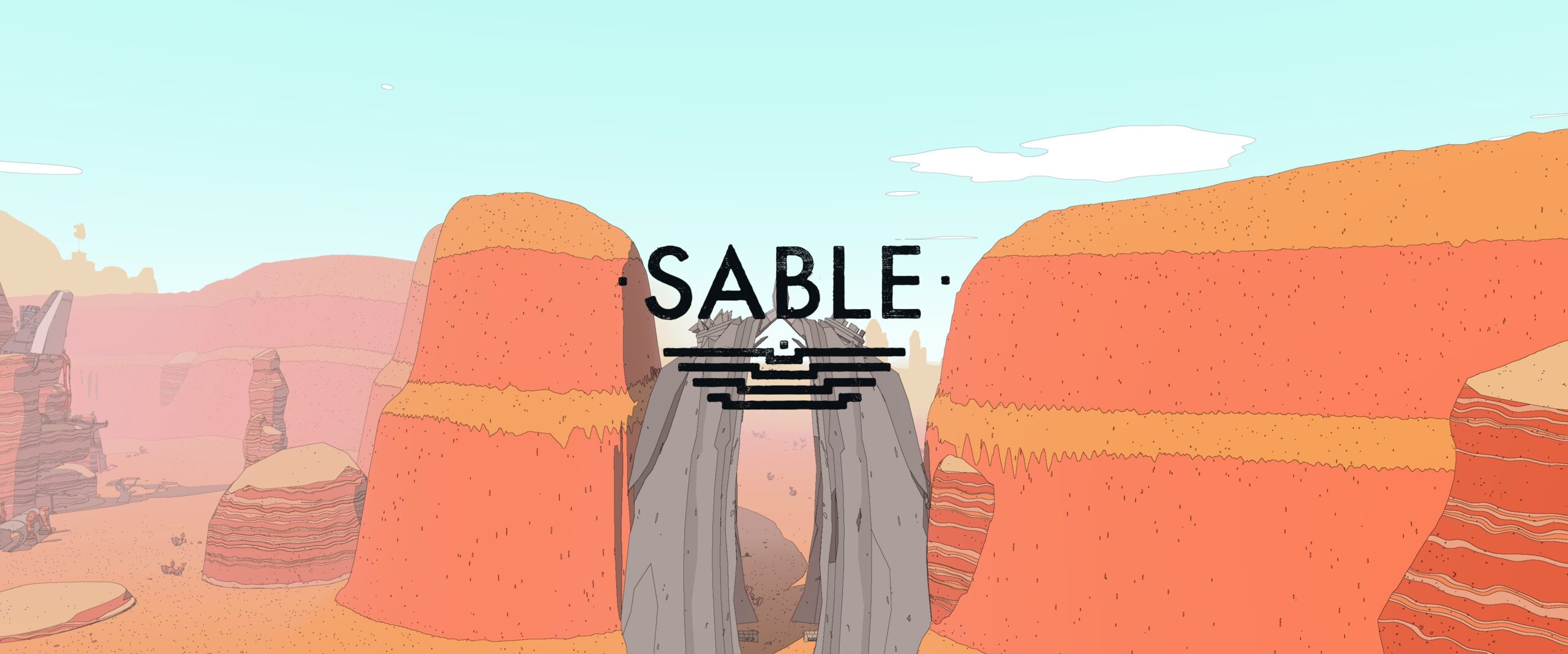
You are, as the name of the game would imply, Sable, a young girl of the nomadic tribe called the Ibexii. In this world all young people undergo a rite of passage called the Gilding where they’re granted some powers by an ancient artefact and given a glider with which to begin their journey. It is on The Gliding where you will decide your future place in society by aiding those who currently do those jobs and gaining a mark of appreciation from them. Your first step on this journey is to track down the ancient artefact that grants your ability to glide as well as to scavenge up the parts for your first glider. From there it’s up to you to find your way in the world, wherever that may be.
There’s no denying that Sable is an absolutely gorgeous game, it’s cel-shaded vistas bursting with super-saturated colours during the day and a gamut of muted dark tones at night. The animation style is pretty off-putting at first, done in a low-fi anime style something which I haven’t seen done outside of hand drawn games. It’s especially jarring when a lot of the rest of the world is smoothly animated too, like when you’re riding your bike or the interactions between background objects. This being said after a while you stop noticing it, mostly because of just how nice the rest of the world looks. Performance is also stellar, with high frame rates maintained in all locations that I visited. Whilst many will make the comparison to Journey it’s really only tangentially inspired by it in terms of aesthetic; it’s really in a place all of its own.
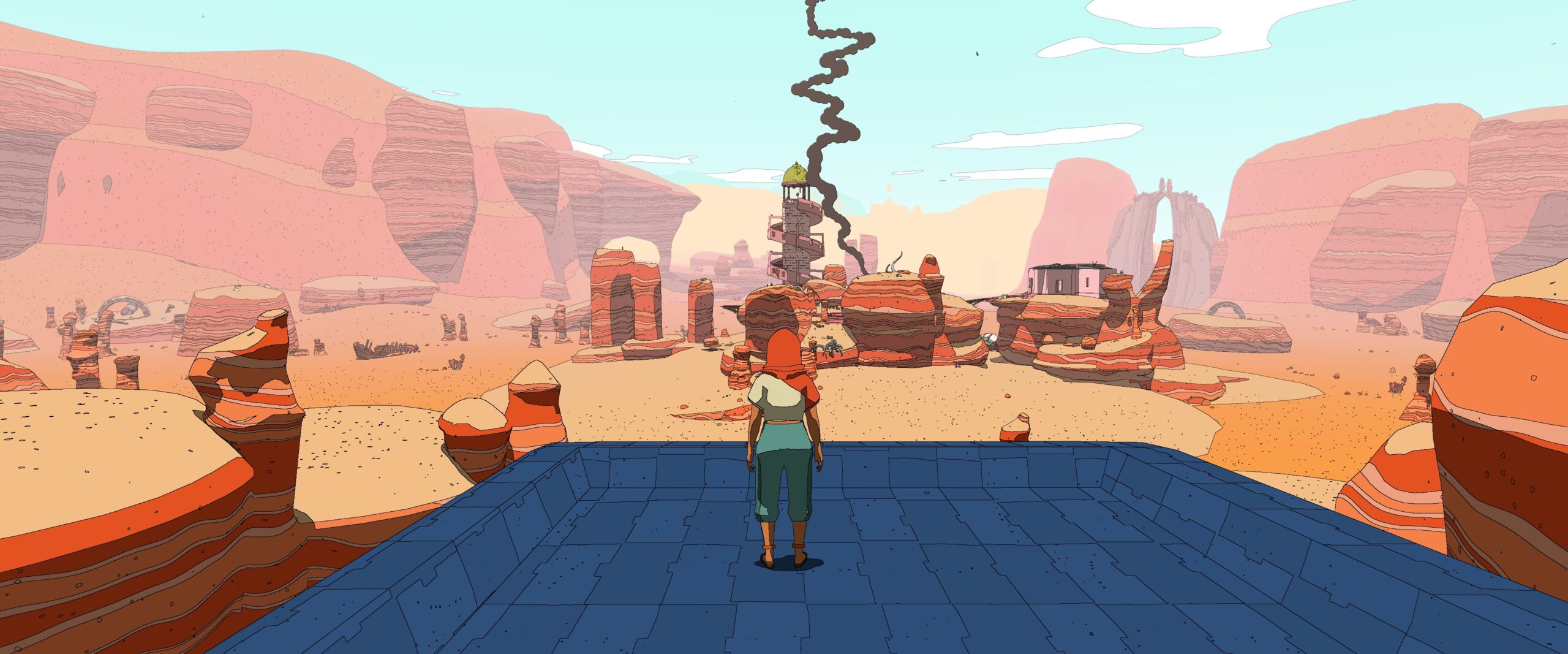
Sable is an open world game in the truest sense, holding you back from the game proper only for an hour or so whilst it gives you the basic tools you’ll need to explore the world. From there you’re basically left on your own to figure out your path through the world as the first questline you’re given peters out pretty quickly. It’s not much of a challenge to find others to pick up though, however whether or not they’re aligned to what your ultimate goal is (I.E. getting a mask of the right profession) is something you’re not really going to know until they’re finished. There’s a handful of progression mechanics like upgrades to your bike and increases to your stamina but nothing much beyond that apart from cosmetics. It’s clear that the main thrust of the game is the wandering, ponderous journey that you’ll take and not so much the destination. This is where I’d cheekily insert something about “making friends along the way” if I was feeling particularly trite.
Sable’s opening hours were a bit of an exercise in frustration if I’m honest. Your starter bike is achingly slow, and the path to getting a better one doesn’t become readily apparent for some time. The game also neglects to point out its fast travel system, something which makes the game a lot more enjoyable when you realise that basically any key area is able to be used in that fashion. The UI could also use some work as, for some reason, it’ll switch to borderless if you’ve got it set to fullscreen (although it seems fine if you select borderless). It’s also not particularly intuitive and there doesn’t appear to be options to map things like, say, your inventory to a button. This leaves you with the only quick button being the map which you then have to switch away from, not game breaking but certainly annoying.
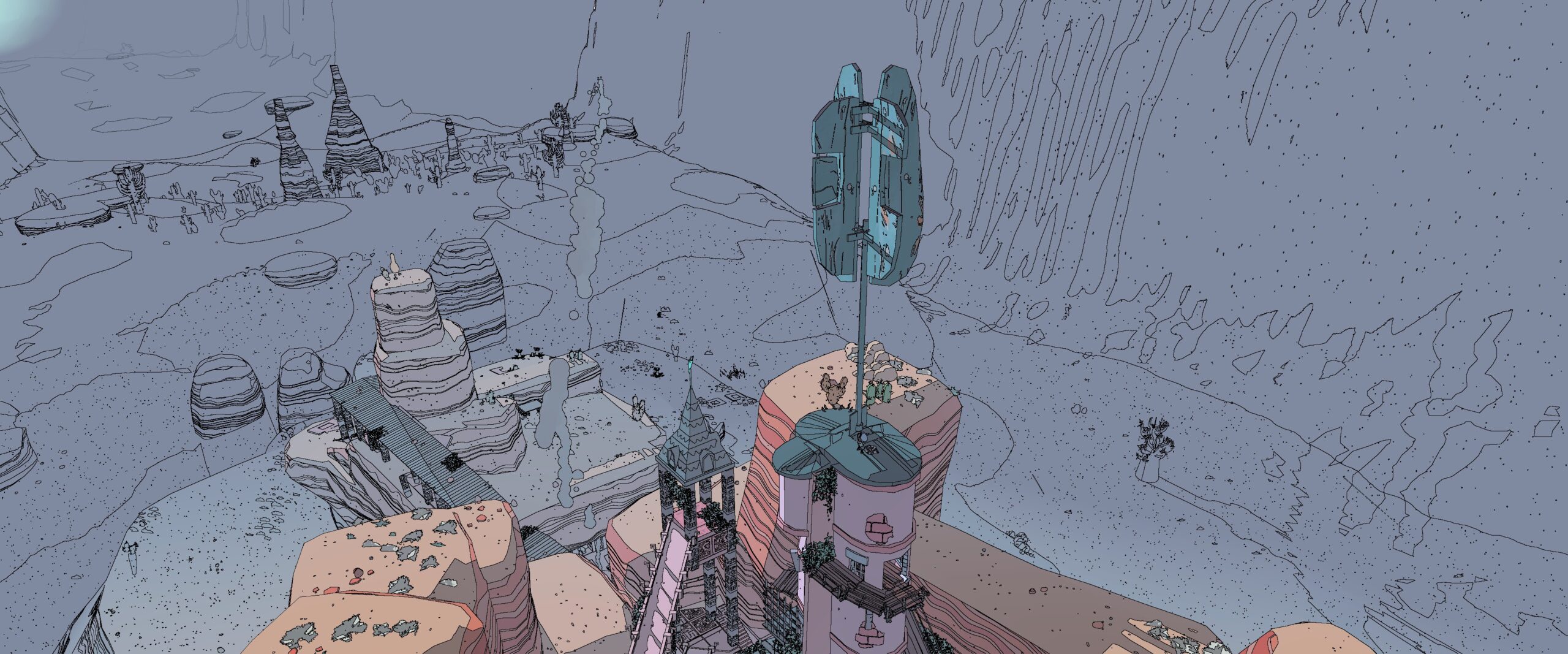
The exploration of the world and the environments is somewhat satisfying, especially when you’re able to figure out a novel way of getting past an obstacle or something that the developers didn’t really intend. This mostly comes from having more stamina than the base, something which is pretty easy to do if you keep an eye out for those weird egg things that seem to be all over the place. Your glider can also be used in fun and inventive ways to get over things, especially when you get one of the upgraded ones that really lets you get up to speed. This is obviously where the parallels between Breath of the Wild and Sable come into play, given the formers penchant for all sorts of emergent gameplay. Of course Sable is nowhere near the same level, but the fundamentals are there.
It doesn’t take long for the repetition to start setting in though as almost all puzzles are the same: go here, search for thing, do some climbing puzzle to find said thing, bring it back to quest owner, complete. Some are a bit more long and involved, requiring multiple steps with different mini-quests in the middle, but they’re all pretty much an excuse for you to get back on your bike and go somewhere. The intent here is, of course, for you to travel the vast desert as much as you can in order to stumble across the many mysteries and wonders that dot the landscape, pulling your attention away from whatever you’re doing to investigate.
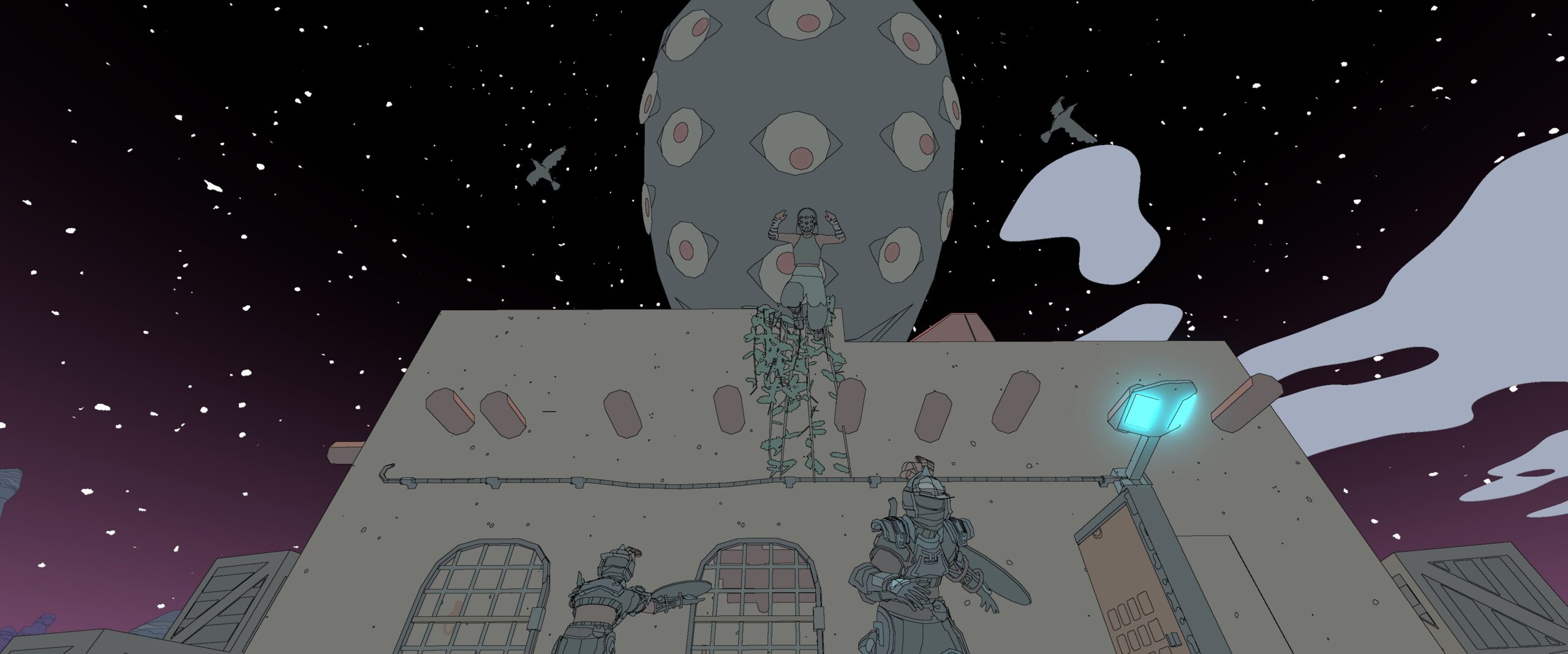
In that regard Sable does well as I spent quite a bit of time investigating things that obviously had no direct correlation to…well anything I knew of but seemed interesting enough to be worth the detour. Of course part of the allure was the hope of getting some rare materials or some cash to spend on upgrades but I can’t say I didn’t enjoy some of the more intricate and elaborate platforming puzzles. There were times where I’d get stuck and needed to consult a guide as some of the puzzle construction is quite obtuse, but that’s just the nature of the beast with these kinds of games.
In the end it was the (lack of) story that did in Sable for me. Whilst there’s certainly some interesting characters and stories in here the lack of a strong, overarching narrative made it hard for me to engage with Sable for a long period of time. To be sure I had fun exploring areas, finding new people and learning more about the world, but without something deeply interesting or motivating to keep me going I really didn’t feel the need to keep on playing. Those little vignettes and other engagements are great, but they’re not enough to carry things forward on their own. This is why I mentioned in the preamble that I just don’t find my actions in games like this particularly interesting, they just simply aren’t enough to form a compelling story.
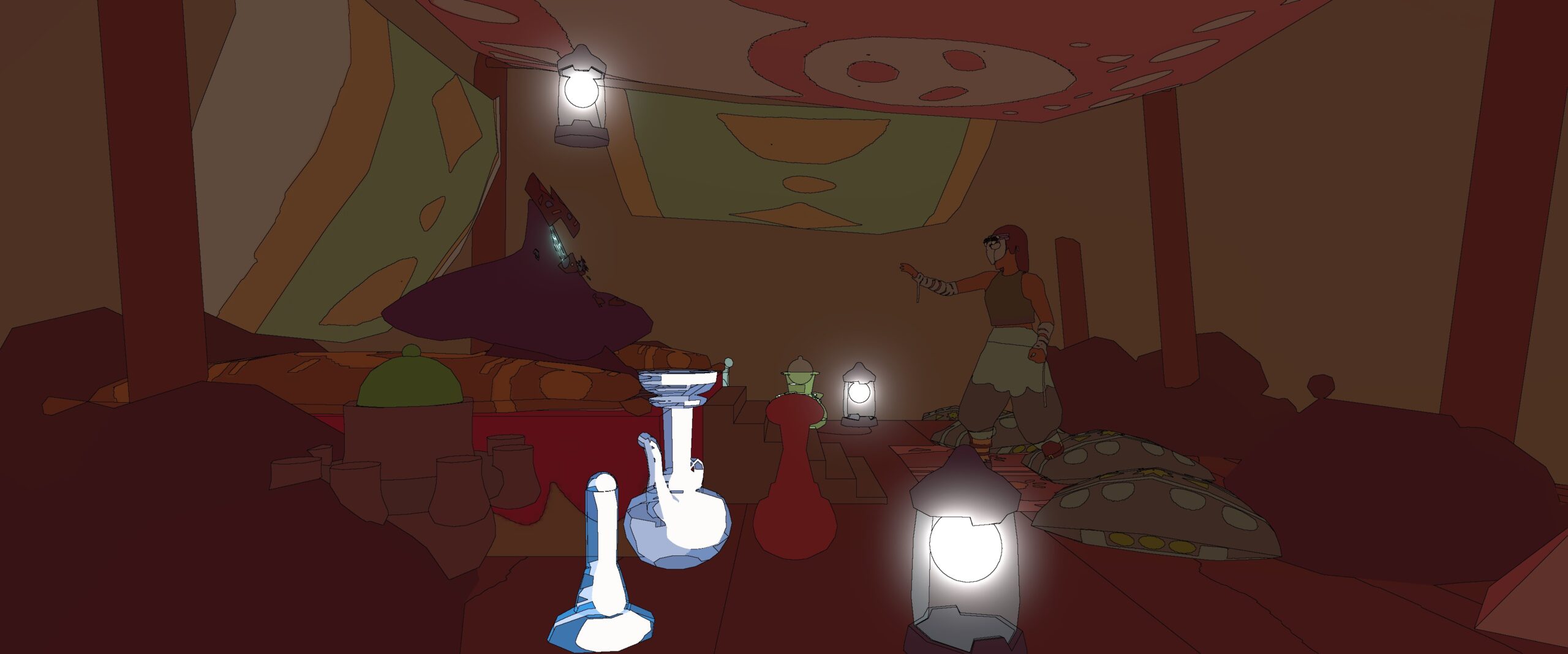
Sable then is for those who want to wander the vast plains, soaking in the environment and exploring wherever their desires take them. Everything Sable presents is a background to the journey that you’re taking with it, a canvas upon which to paint your own experience and narrative. For me, whilst there’s many parts of Sable to celebrate the sum of those parts isn’t greater than the whole. Instead it’s an experience that, after a certain point, I had seen enough of and had no desire to see more. Perhaps there is more there to be seen but, honestly, I don’t think there is based on the reviews I’ve seen. With all this being said then, Sable is a game I can say is good for a certain kind of gamer, and I’m just not one of them.
Rating: 7.5/10
Sable is available on PC, PlayStation 4, Xbox One, Xbox Series X/S for $35.95. Game was played on the PC with a total of 6.2 hours played and 42% of the achievements unlocked.



